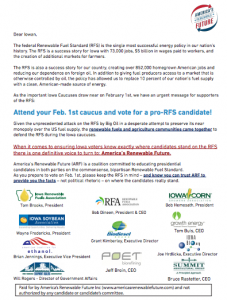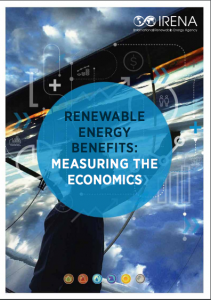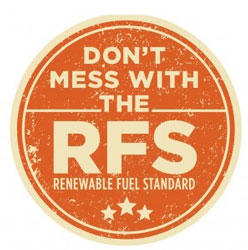 The National Biodiesel Board (NBB) is challenging the federal government’s rules on the import of Argentinian biodiesel. This article from the NBB’s ally, the American Soybean Association (ASA), says NBB filed a legal brief with the U.S. Court of Appeals for the District of Columbia Circuit that says the way the Environmental Protection Agency (EPA) is handling Argentinian biodiesel violates the Renewable Fuel Standard (RFS).
The National Biodiesel Board (NBB) is challenging the federal government’s rules on the import of Argentinian biodiesel. This article from the NBB’s ally, the American Soybean Association (ASA), says NBB filed a legal brief with the U.S. Court of Appeals for the District of Columbia Circuit that says the way the Environmental Protection Agency (EPA) is handling Argentinian biodiesel violates the Renewable Fuel Standard (RFS).
In January of 2015 the U.S. EPA approved an application to streamline the process for Argentinian biodiesel imports to demonstrate compliance with the eligible renewable biomass and sustainability verification requirements of the RFS. The application was submitted to EPA by CARBIO, the trade association representing Argentinian biodiesel producers. The EPA approval allows a more streamlined survey approach for demonstrating feedstock sustainability instead of the more rigorous map and track requirements.
The NBB filed the initial petition in December 2015 seeking court review of the EPA decision, citing the lack of a public comment period, the adequacy of the Argentinian plan, and the inability of EPA to verify that the plan meets RFS requirements.
In the brief filed this week, the NBB responded to EPA’s claims that the U.S. biodiesel industry is not a proper party to challenge EPA’s decision and that EPA can act outside of the public eye and without the court’s oversight in this case. The reply brief reminds the Court that EPA never disputed that Argentina continues to expand its agricultural base or that the CARBIO proposal was the first of its kind and differed from what EPA previously noticed to the public.
The NBB also previously filed an administrative petition for reconsideration with the EPA regarding this decision. However, EPA has not responded to that administrative petition, choosing instead to argue in Court. Final briefs in the case are due next month, after which oral arguments will be scheduled.
ASA points out that imports of biodiesel from Argentina to the U.S. increased sharply toward the end of 2015 and are expected to rise again this year.








